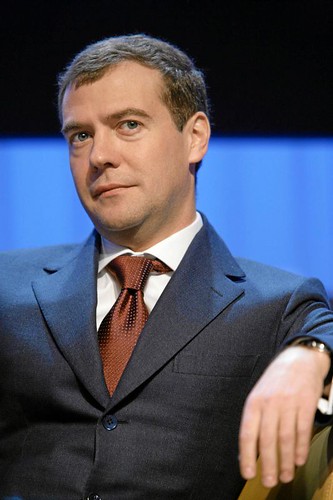A rival vision, espoused by what one could call Euro-Realists--the politically correct term in Brussels lingo is intergovernmentalists--still considers the nation-state as the main actor in Europe, tending to support a rather minimalist course of action for the EU. Recent events dictate that the Euro-Realists now have the upper hand, but there has been a history of back and forth between the two.
Charles De Gaulle, the arch intergovernmentalist, began a long period of Euro-Realist domination of the EU in the mid-1960s with his disappearing act from the European Commission, boycotting the body in what came to be known as the "empty chair crisis", which resulted in the Luxembourg Compromise: thereafter, states can veto any EU initiative if it deems it as detrimental to the national interest. But the federalists recently enjoyed a resurgence, having presided over massive integration projects; the creation of three treaties since the early 1990s--the Maastricht Treaty, Amsterdam Treaty, and Nice Treaty--and the recent European Constitution.
The European Constitution, among other things, included some underpinnings of a state: for one, the namesake, a constitution; secondly, references to a flag and anthem. But voters from France and the Netherlands definitely put a pause--although perhaps not an end--to the constitution via referendums in 2005.
Angela Merkel, chancellor of Germany, who currently holds the rotating presidency of the EU, seeks to breathe life into the treaty. She has her work cut out for her. Although eighteen member states have already signed and ratified the constitution as it was written, the Euro-skeptic, to put it mildly, Poles and British cannot accept the document as it is. This is not to mention the populaces that already refuted it, the French and the Dutch.
The crafty chancellor knows this. Consequently, Merkel has been touting the possibility of a slimmed down treaty--dismissing the more troublesome sections and just including mainly a smaller European Commission, an EU Foreign Minister, a 2 1/2 year term EU President, and new voting weights--in which cynical states could bypass their citizenry and ratify the document in parliament.
In truth, Merkel and the rest of Europe have been waiting for the French election results before doing much of anything. Sarkozy's recent victory, along with the announcement of the departure of British Prime Minister Tony Blair this summer, shakes up the European political scene. Powerful states, the UK and France, after July will be led by different personalities--after over a decade of Tony Blair and Jacques Chirac. In regards to the latter, good riddance. However, Blair may have been the most pro-European leader ever to grace 10 Downing Street.
The stage is now set for hopefully the conclusion of this strenuous process and the signing of a treaty, as the club rules certainly need to be updated to adjust to 27 members. And the election of Sarkozy and the ascendance of Gordon Brown, Blair's successor, tilts the European political scales in favor of the Euro-Realist vision, especially regarding the constitution.
Sarkozy campaigned on the idea of a trimmer "mini treaty" and Brown, who has yet to declare his true European colors but is known as more euroskeptic because of his decision as Chancellor of the Exchequer to keep Britain out of the Euro, certainly wishes for an excuse to refrain from a constitutional referendum. Merkel will thus seek to enlist the support of these new-found leaders for a mini-treaty and hope to buy off the rest of the skeptics, notably Poland.
Opt-out clauses are an effective outlet for tepid states to sign up to the meat of a treaty while staying out of politically sensitive programs within the initiative. This is how Denmark was persuaded to sign the Maastricht Treaty in 1992, notably opting out of defense and monetary integration, and how the Irish similarly refrained from the further defense cooperation inherent in the 2000 Nice Treaty.
Unsurprisingly, it was recently reported that the UK is being tempted with opt-out clauses in the realm of justice and home affairs in order to ease the ratification process of a new treaty. Given these circumstances, the adoption of a new, smaller constitution is indeed a distinct possibility in the run up to an important EU Summit this June.
Euro-Realists will no doubt dictate the strategic near future of the EU, as Merkel, Sarkozy and Brown rule the most powerful states in the union. Their more free-market economic leanings and less ambitious plans for the EU also find a friend in Brussels--EU Commission President Jose Manuel Barroso.
Barroso, since taking office in 2004, has attempted to make the commission more efficient, cutting the numerous statutes constantly coming out of Brussels. This effort goes hand in hand with his liberal economic goals, as Barroso notes, "For business we need to roll out a red carpet, not create red tape." Hence, although tenuous, the rise of the Euro-Realists is likely to result in the end of the constitutional crisis, and a more economically liberal and efficient EU. Sighs of relief abound on both sides of the Atlantic.





1 comment:
Excellent first post. Will you be running the gambit of European political events, or focus on particular regions?
I look forward to future hacls.
Post a Comment